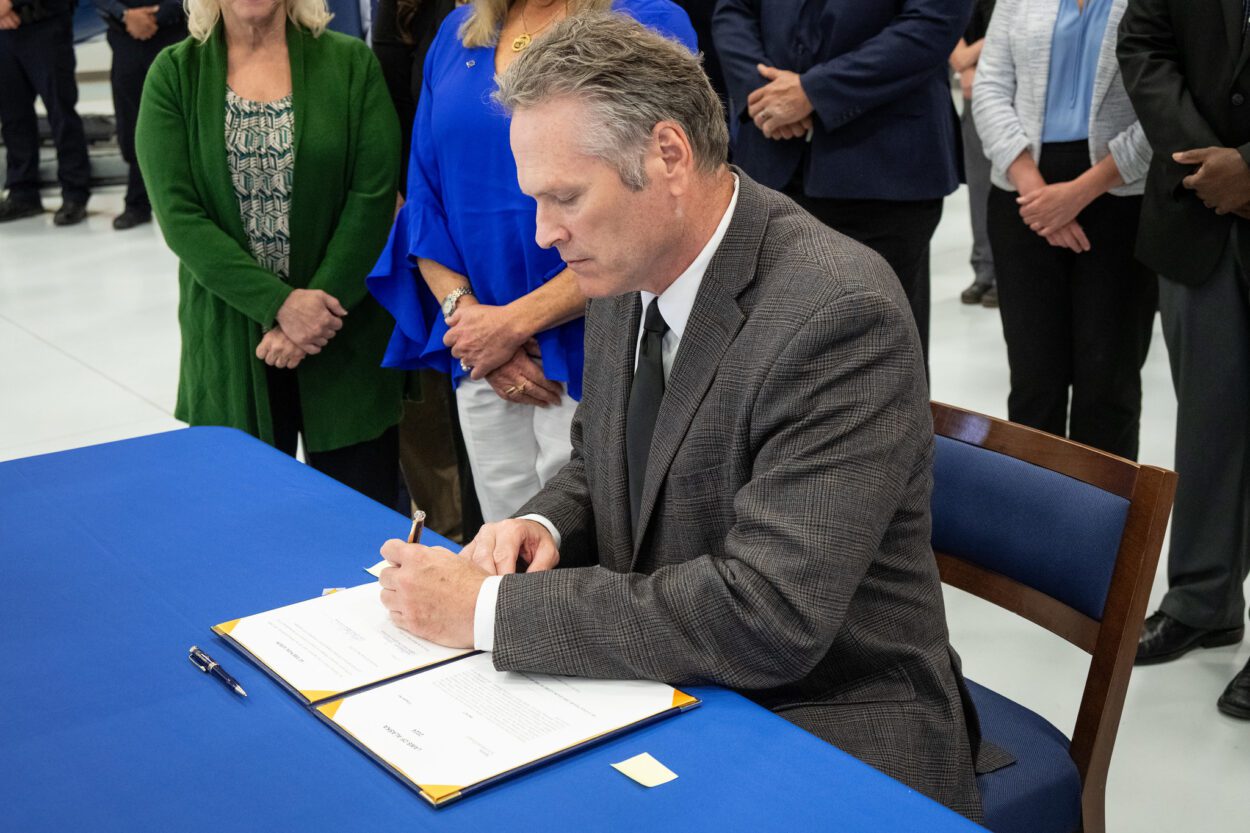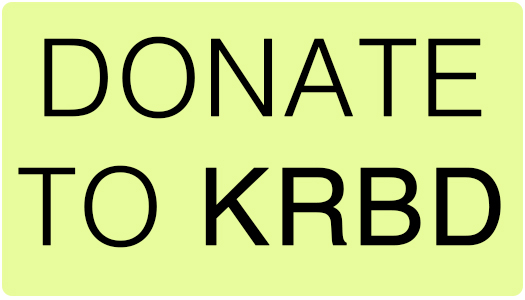
Governor Mike Dunleavy signed a bill on Thursday that, among many other things, increases penalties for the distribution of drugs like fentanyl and methamphetamine.
House Bill 66 started as a bill solely aimed at reducing the rate of overdose deaths in Alaska. Last year was the state’s deadliest year on record for opioid overdoses, according to the state Department of Health. The bill grew into a much larger piece of legislation by the time it passed through the state House and Senate.
At a signing ceremony at the Department of Public Safety’s Lake Hood aircraft hangar in Anchorage Governor Dunleavy said the drug penalty aspect of the bill was about “raising the stakes.”
“For anyone to consciously say, ‘We don’t care. The profit motive is all that matters. We don’t care who the victims are, we don’t care how many kids are impacted, we don’t care about how many accidental poisonings there are,’ we’re going to remind them that they’d better start caring,” said Dunleavy.
Under the new law, a person caught distributing illegal drugs can be held responsible for second degree murder when a buyer overdoses. The minimum sentence for second degree murder in Alaska is 15 years. The max is 99.
At the bill-signing ceremony, Dunleavy led a moment of silence for the families and victims of the fentanyl crisis in Alaska. Sandy Snodgrass, the director of AK Fentanyl Response lost her son to a fentanyl overdose. She said this law will help hold drug dealers accountable.
“HB 66 is a monumental step forward in our fight against fentanyl,” she said. “It honors the memory of those we have lost, including my beloved son Bruce. Let us continue to work together, using every tool at our disposal, to combat the Fentanyl crisis and save lives.”
The Alaska Civil Liberties Union called the bill another failed attempt by the state to incarcerate its way out of the opioid epidemic. In a statement ahead of the bill’s passage, the organization said that the bill relies on a punitive strategy that will only drain state resources that could be going towards more effective methods of prevention.
Their remarks piggybacked off of research from the Pew Charitable Trust that found that increasing penalties on drugs could have the opposite of the intended effect. The organization looked at other states that have adopted more aggressive drug enforcement policies and found no evidence that higher sentences had an effect on the state’s drug problem.








